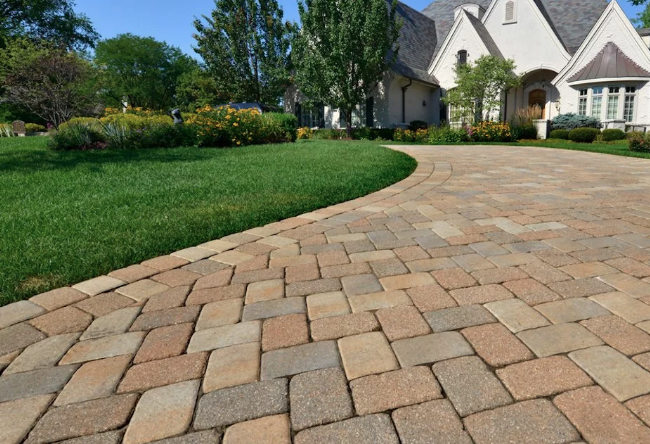

We may earn revenue from the products available on this page and participate in affiliate programs. Learn More ›
Gravel
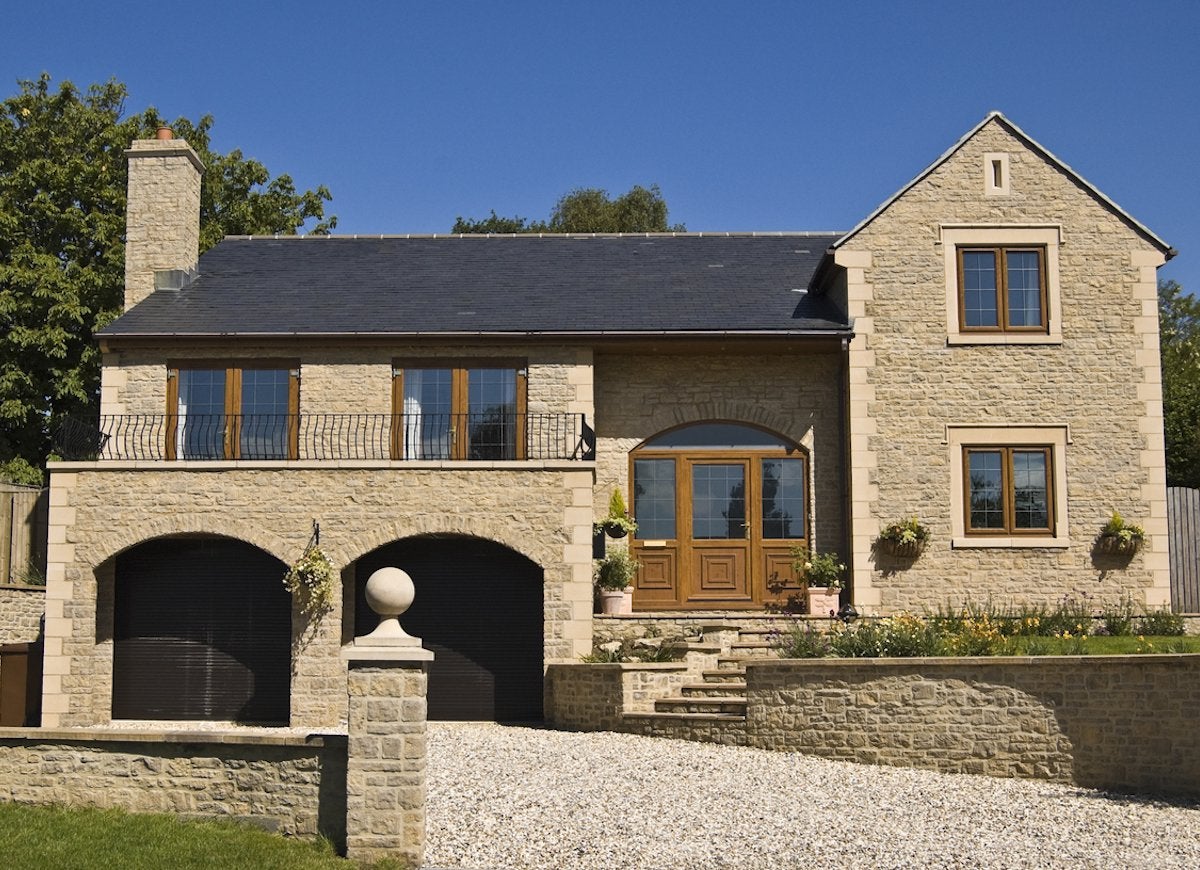
Gravel driveways are very popular throughout the U.S. Though initial installation costs for gravel are low, the ongoing maintenance requirements are considerable, and it’s not the best choice for snowy regions. Quick to install, the material comes in different colors, allowing customized looks to complement your specific house style.
Concrete
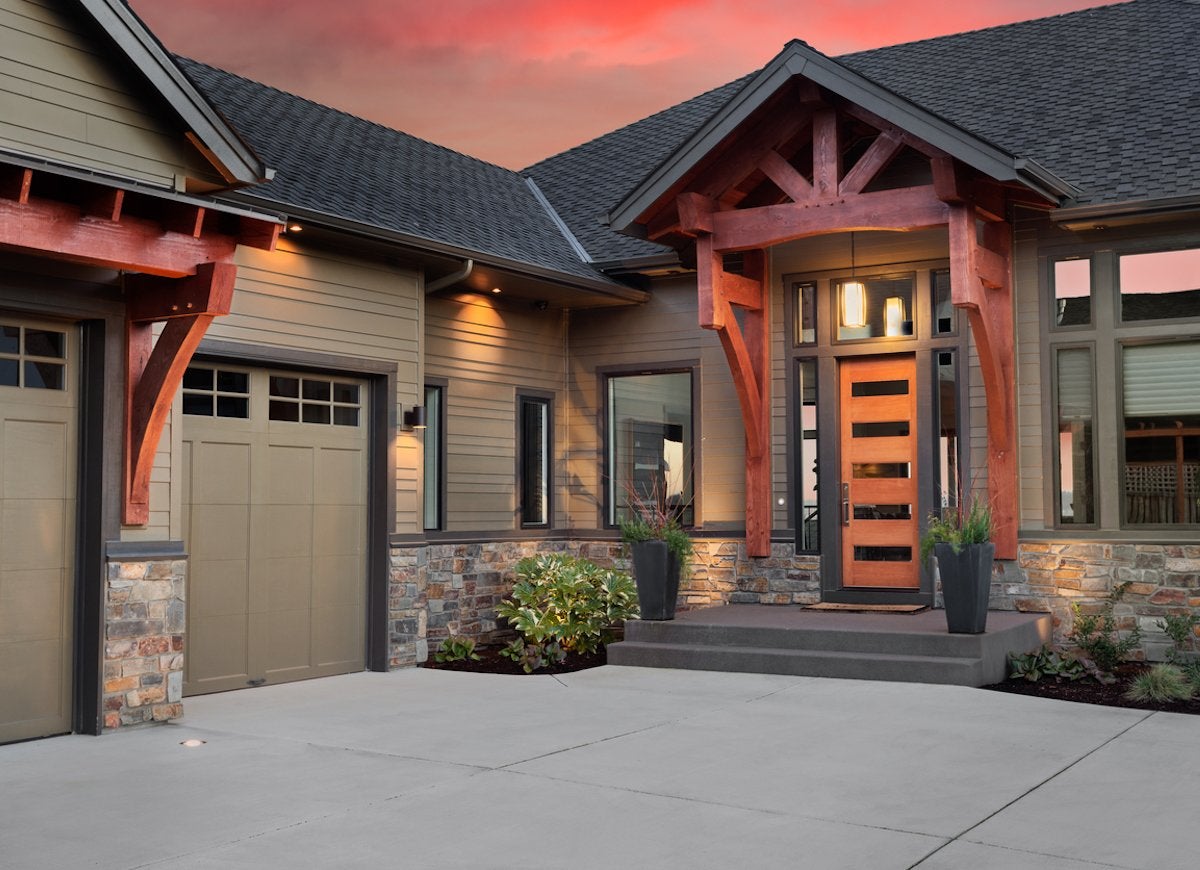
A concrete driveway is versatile, durable, low-maintenance and cost-friendly in the long term, making it another popular choice, but one that is suitable for any part of the country. The design of a concrete drive can be simple and traditional (as pictured) or made elaborate with color, texture, and decorative flourishes.
Pavers
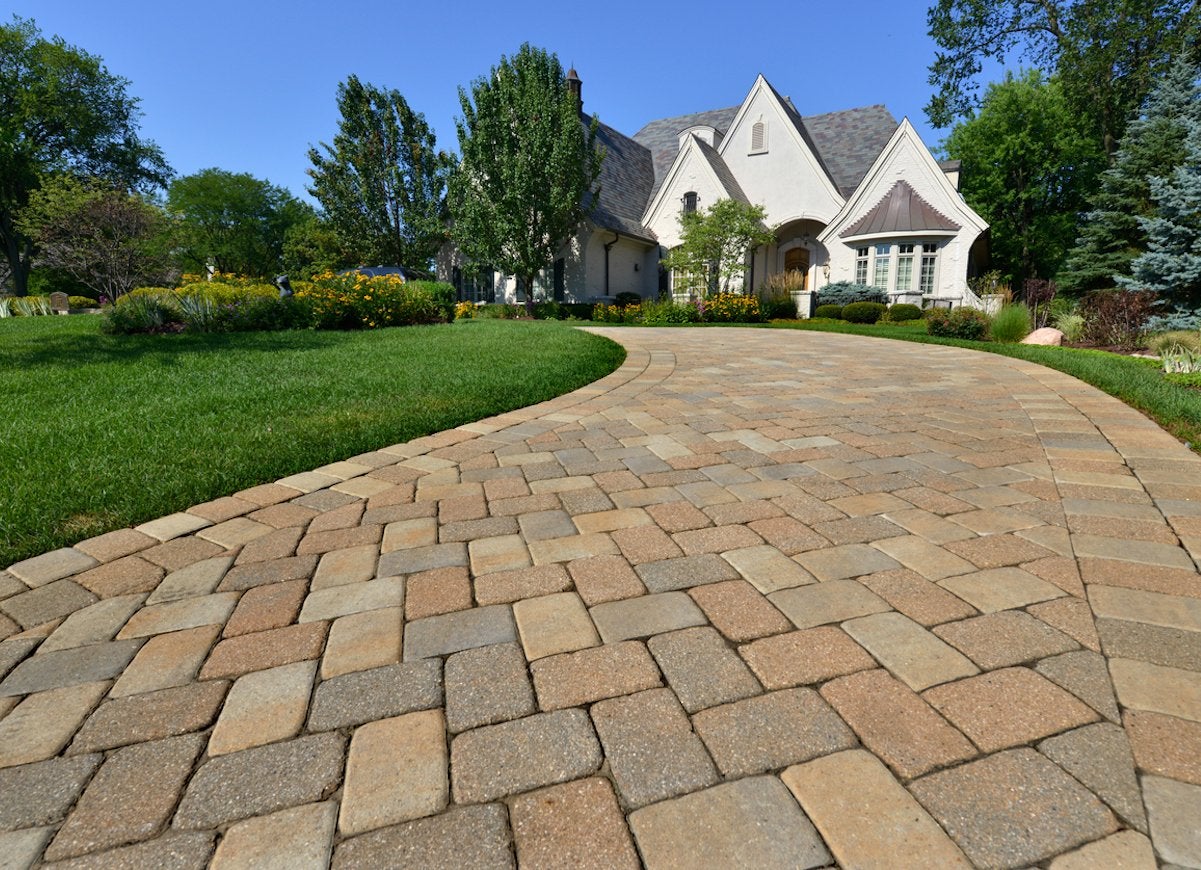
A paver driveway can be a big boost to curb appeal; an enormous array of design choices are readily available. Although it’s more expensive than some other materials to install, a paver driveway carries relatively low long-term maintenance costs and can last 30 to 40 years.
Shell

A natural crushed-shell driveway can be very beautiful and is usually quite cost-effective. Coming in three main varieties—clam, oyster, and scallop—these drives range in color, from off-white to gray to brown. So long as the shells are sourced responsibly, this type of driveway, which provides excellent draining, is an eco-friendly choice.
Asphalt
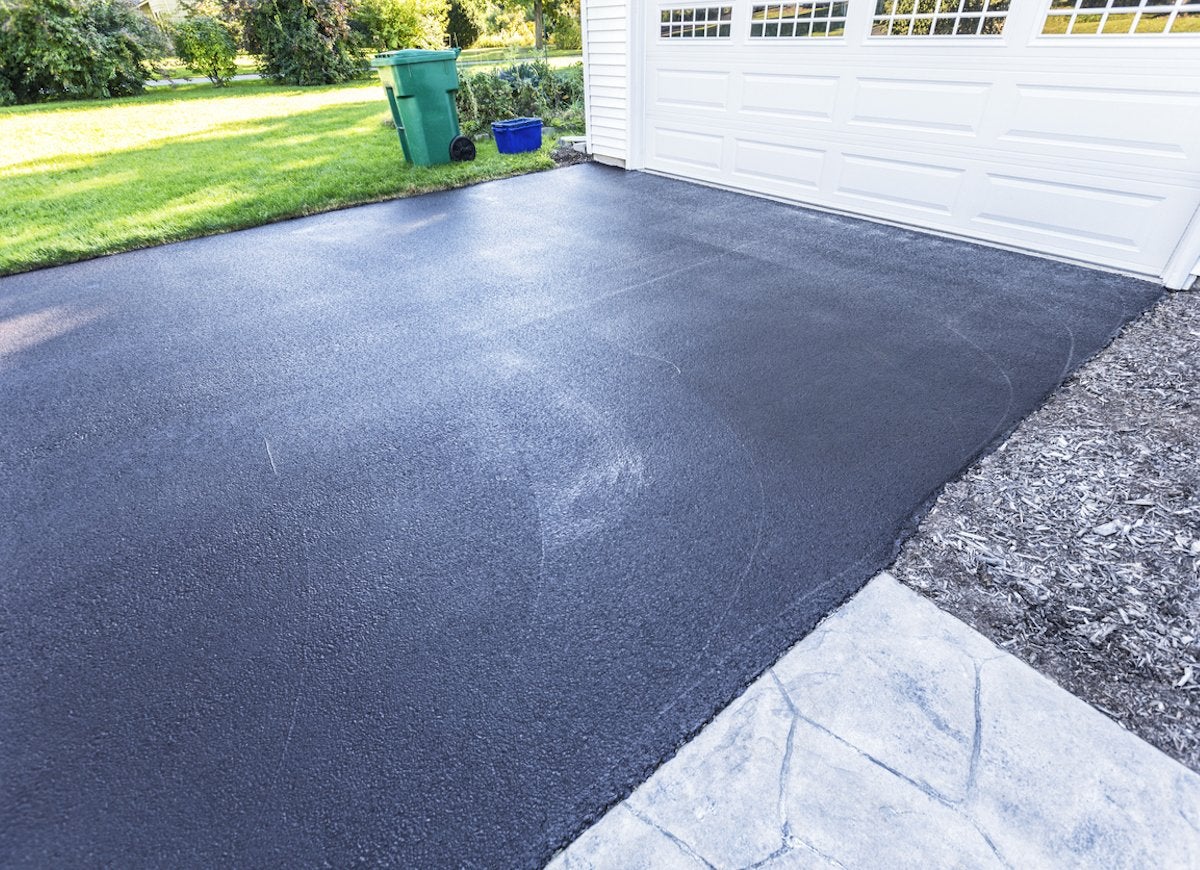
Asphalt driveways are a popular option in Northern U.S. climates, since the material is pliable and weathers freeze-thaw cycles better than concrete or pavers. Also, the black color of asphalt retains heat, which helps melt snow relatively quickly. One drawback is that it requires regular maintenance; sealing is recommended every three to five years.
Pervious Concrete
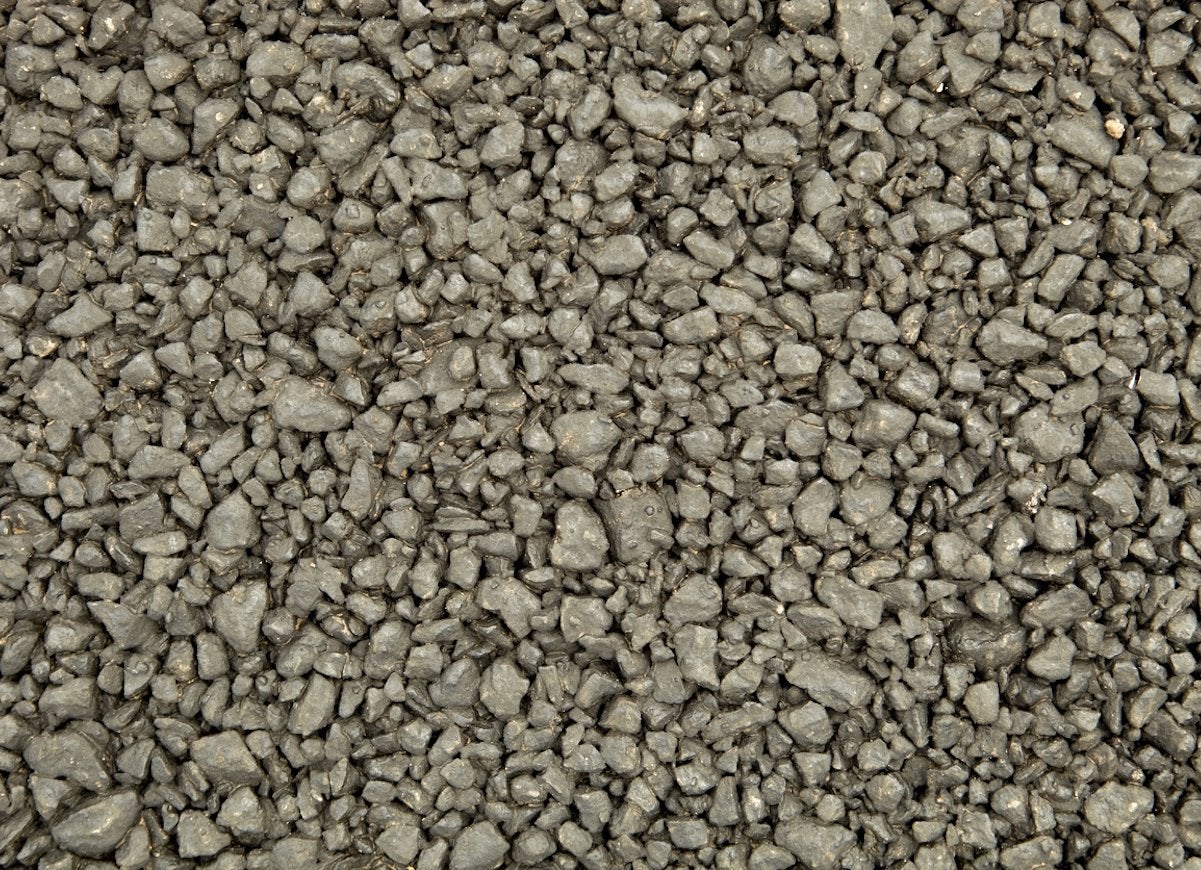
Pervious concrete, which has little to no sand in its mix, allows water to run through its porous surface, eliminating the run-off issues commonly associated with asphalt and concrete driveways. With a rustic, textured, look and feel, environmentally friendly pervious concrete driveways can be unexpectedly attractive.
Basalt Paver Tiles
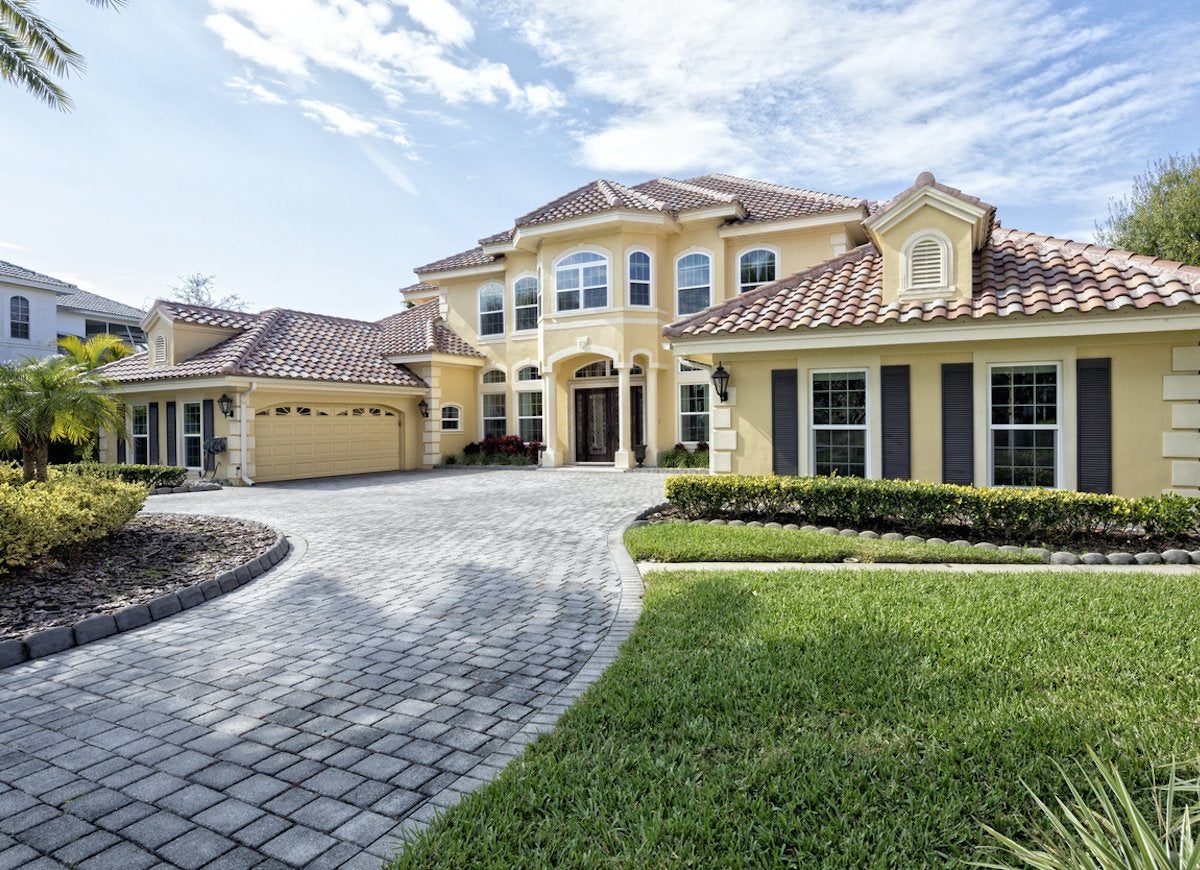
Basalt is an igneous rock that makes up most of the earth’s oceanic crust. Hard, dense, and durable, it’s a beautiful natural paver stone in patios, walks, and driveways. Resilient and naturally beautiful, basalt’s rectilinear geometry and gray-to-black color palette make it a suitable visual complement to modern architecture.
Grass
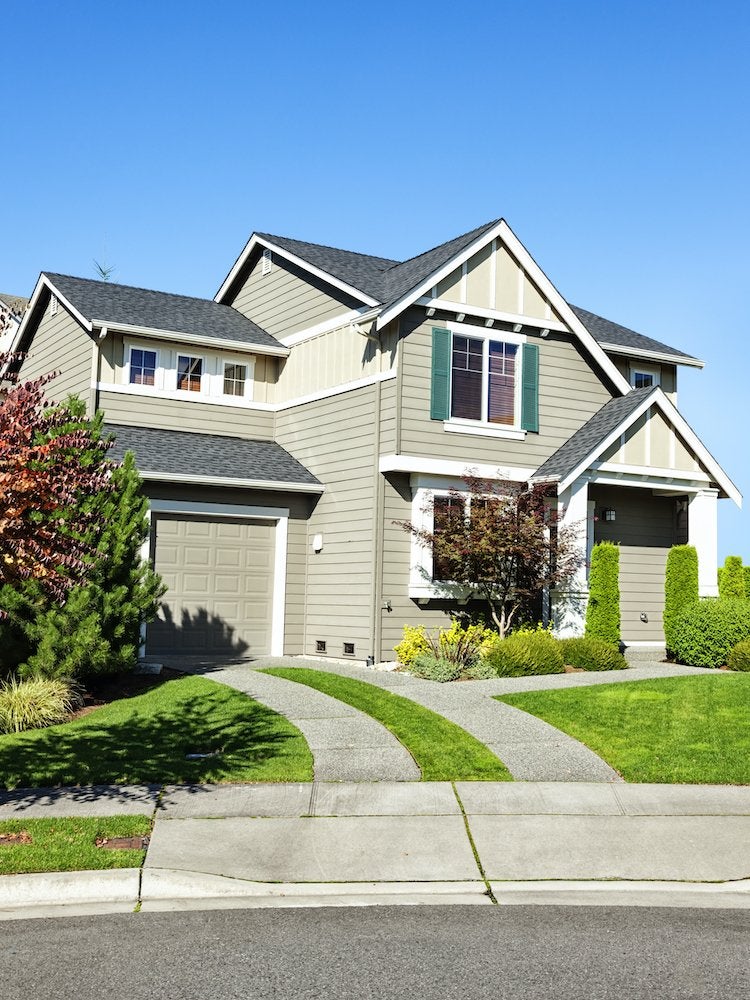
In grass driveway technology, ‘geo-grid’ materials provide the necessary support structure for cars, while protecting the soil’s root zone and allowing grass to grow, even in this high-traffic area. Of course, grass is permeable, and as a driveway material, it’s pretty darn cool to look at.
Brick
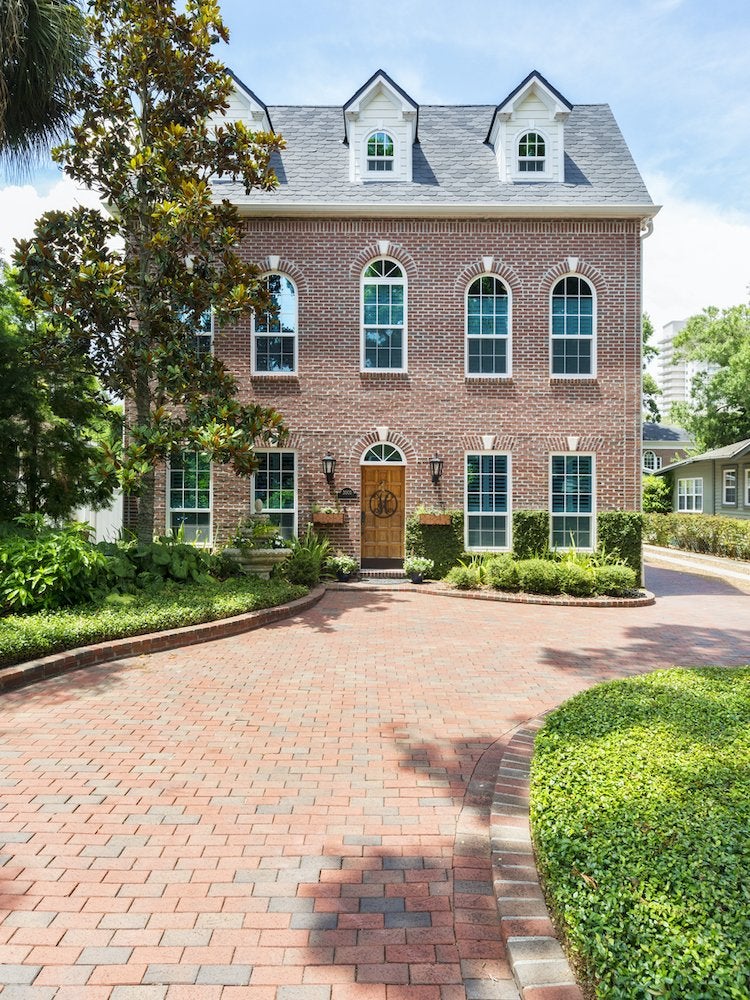
Rich colors and varied patterns make brick driveways a truly elegant choice. Though expensive to install, they can have a big, positive impact on a home’s resale value. If installed properly, the maintenance costs are modest, and the material should last a lifetime.
Determine Your Driveway Material

There’s a great choice for your driveway no matter your budget, climate, and style.

All You Need to Care for Your Lawn & Garden
Keeping your grass green and your plants thriving doesn’t just take a green thumb—it starts with the right tools and supplies.